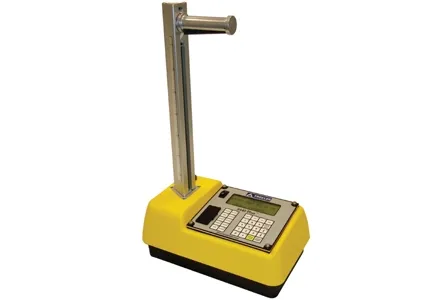America's national research effort to develop publicly-acceptable technology that will prevent the illegal operation of a vehicle by a drunk driver (0.08 or above blood alcohol content) is entering a new phase in which it will move out of the laboratory and onto the road with a drivable test vehicle expected to be ready in two years.
February 29, 2012
Read time: 2 mins
America's national research effort to develop publicly-acceptable technology that will prevent the illegal operation of a vehicle by a drunk driver (0.08 or above blood alcohol content) is entering a new phase in which it will move out of the laboratory and onto the road with a drivable test vehicle expected to be ready in two years.
The Driver Alcohol Detection System for Safety (DADSS) research programme, which began in 2008, is a five-year, US$10 million cooperative research effort of the2467 National Highway Traffic Safety Administration (NHTSA) and the Automotive Coalition for Traffic Safety (ACTS), representing leading automakers in the US.
"What we're doing is developing technology that won't hassle sober drivers; will require virtually no maintenance or upkeep; and will have such precision that it only stops a driver when their blood alcohol content is at or exceeds 0.08 blood alcohol content (BAC) - which is the legal limit that policymakers have set for drunk driving in every state," said Rob Strassburger, VP, safety and harmonisation of the Alliance of Automobile Manufacturers. "This will be lifesaving technology."
3448 Autoliv Development of Sweden and 2333 Takata-TruTouch of Auburn Hills, Michigan and Albuquerque, N.M., are both involved in the next research phase. Each company has been awarded $2.25 million after successfully demonstrating during the proof-of-concept phase that they have the potential for ultimately meeting stringent performance criteria established for DADSS.
Installation of the prototype DADSS systems into a research vehicle continues the development of these technologies for subsequent voluntary installation in production vehicles in the next eight to ten years.
Autoliv is developing a breath-based testing device for BAC detection, while Takata-TruTouch is working on a touch-based approach.
"While the nation has made great strides in reducing drunk driving over the years, it continues to be one of the leading causes of death and injury on America's roads, claiming a life every 48 minutes. Advanced alcohol-detection technologies are a promising new tool to prevent drunk drivers and repeat offenders from getting behind the wheel," said US Transportation Secretary Ray LaHood.
The Driver Alcohol Detection System for Safety (DADSS) research programme, which began in 2008, is a five-year, US$10 million cooperative research effort of the
"What we're doing is developing technology that won't hassle sober drivers; will require virtually no maintenance or upkeep; and will have such precision that it only stops a driver when their blood alcohol content is at or exceeds 0.08 blood alcohol content (BAC) - which is the legal limit that policymakers have set for drunk driving in every state," said Rob Strassburger, VP, safety and harmonisation of the Alliance of Automobile Manufacturers. "This will be lifesaving technology."
Installation of the prototype DADSS systems into a research vehicle continues the development of these technologies for subsequent voluntary installation in production vehicles in the next eight to ten years.
Autoliv is developing a breath-based testing device for BAC detection, while Takata-TruTouch is working on a touch-based approach.
"While the nation has made great strides in reducing drunk driving over the years, it continues to be one of the leading causes of death and injury on America's roads, claiming a life every 48 minutes. Advanced alcohol-detection technologies are a promising new tool to prevent drunk drivers and repeat offenders from getting behind the wheel," said US Transportation Secretary Ray LaHood.








